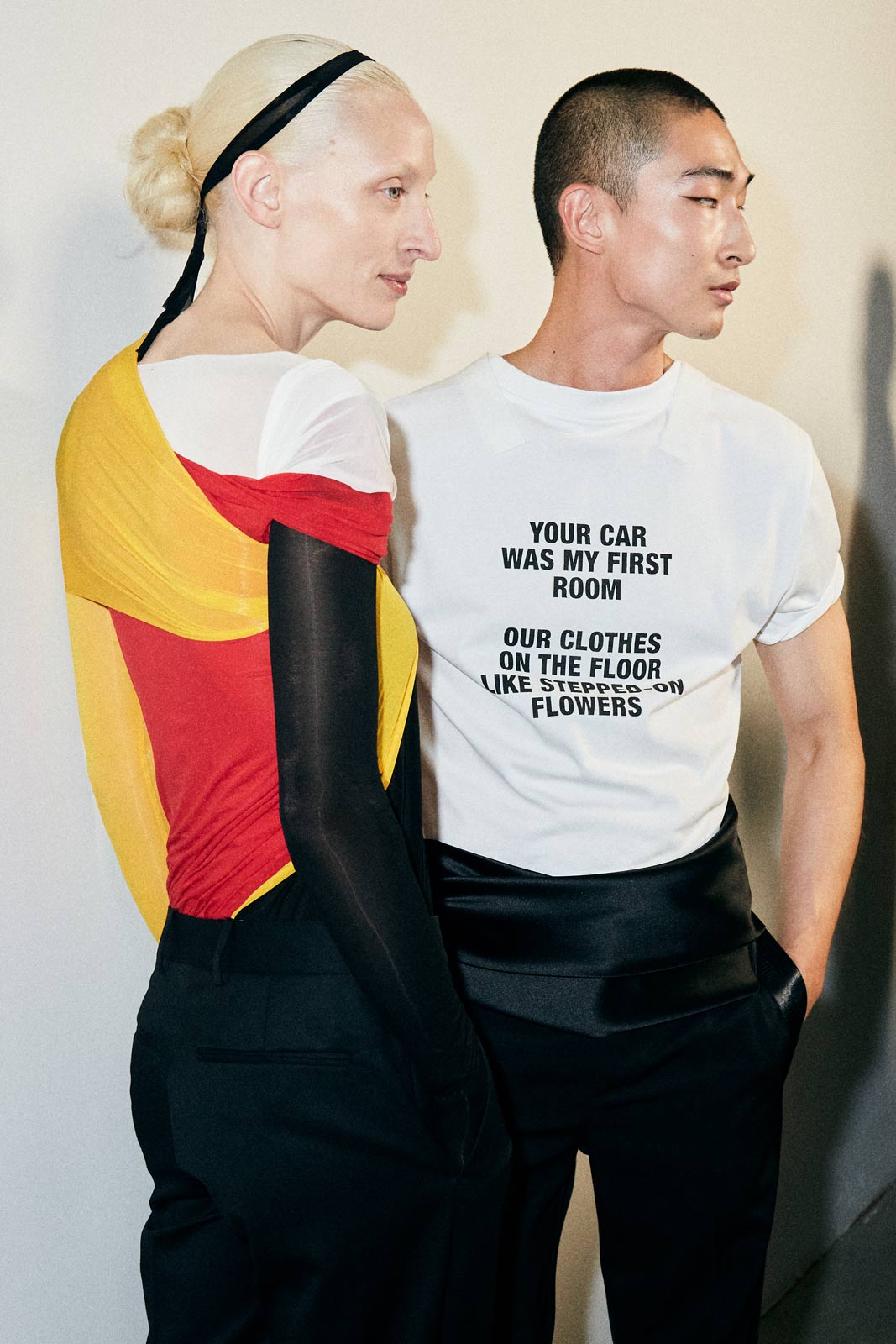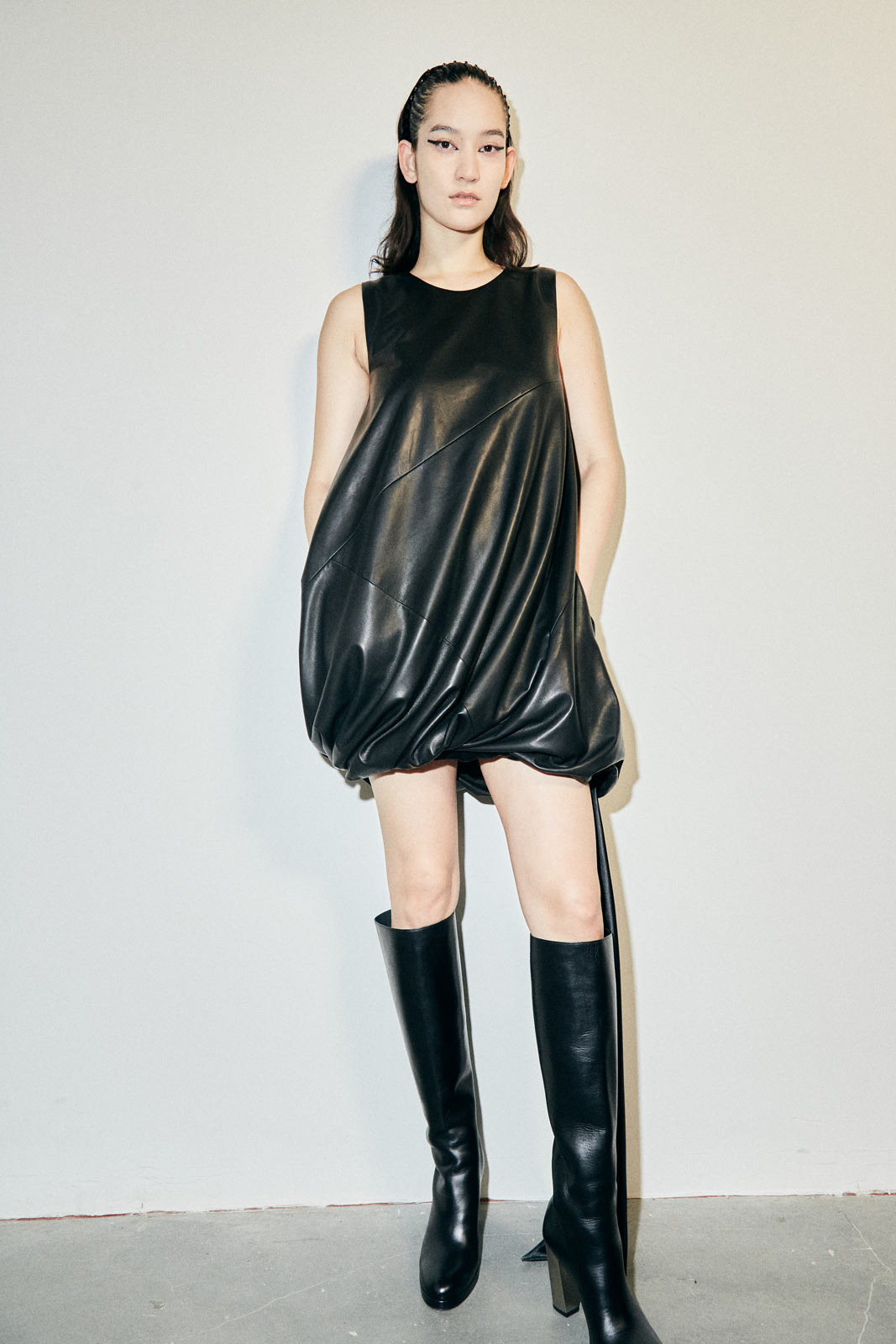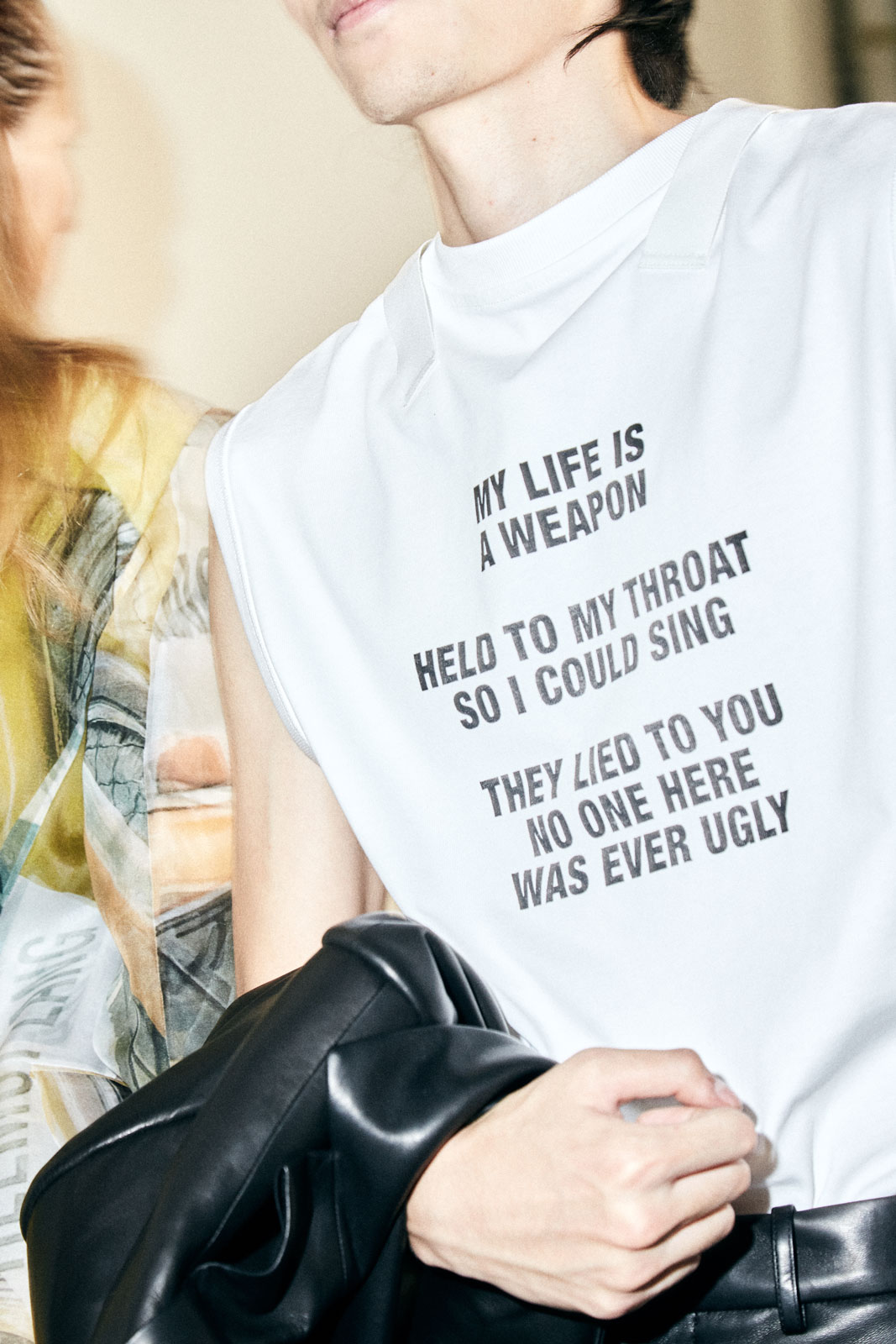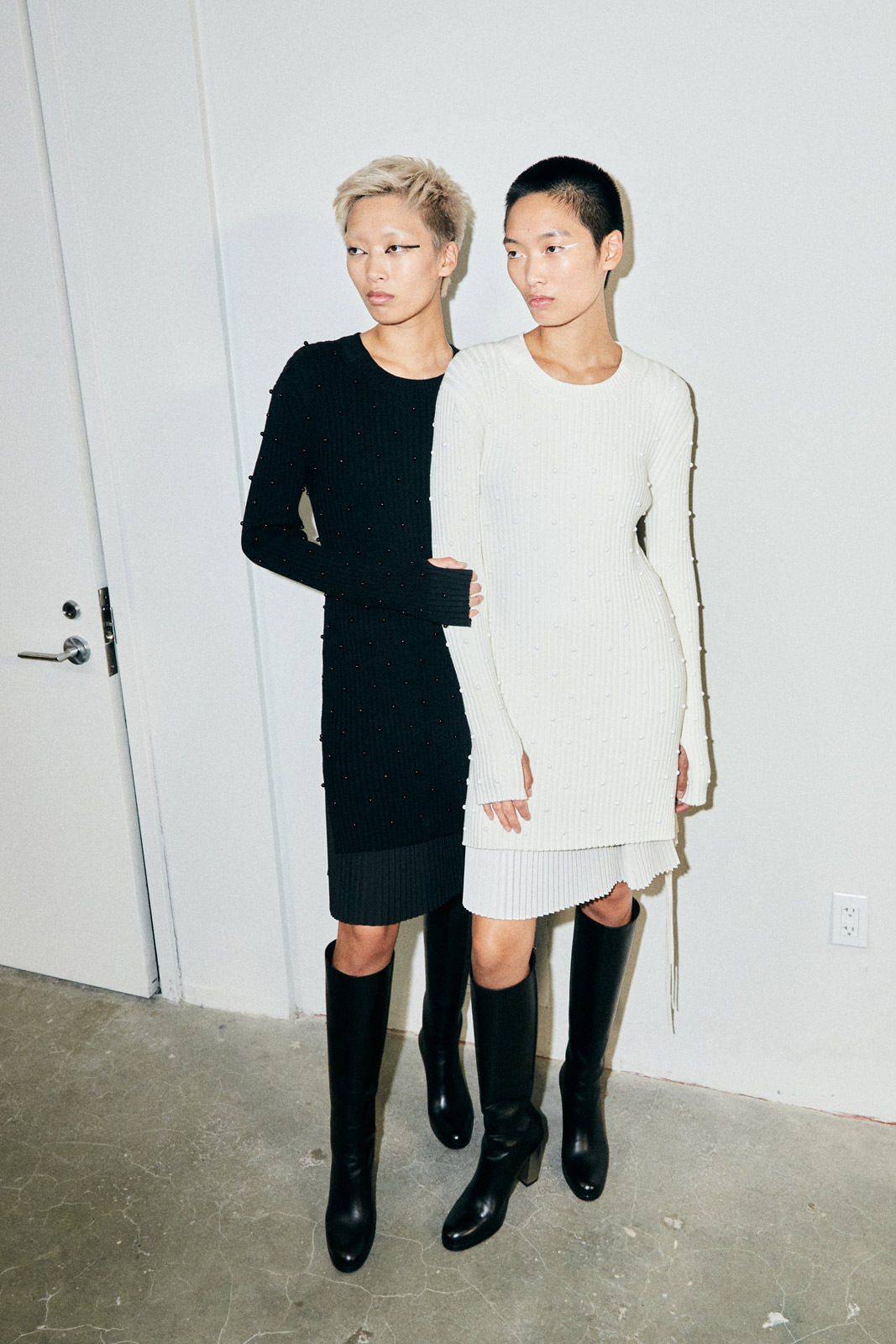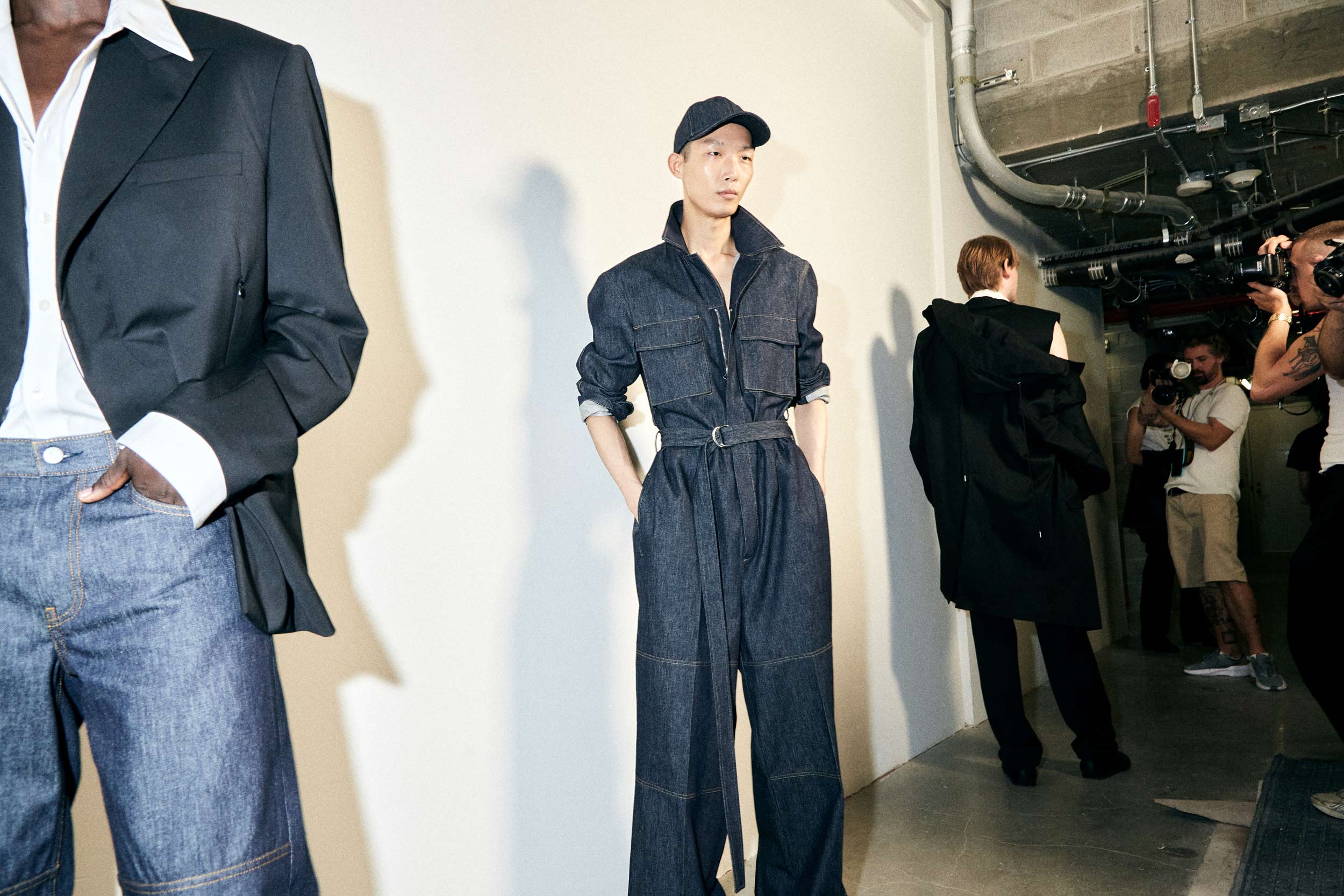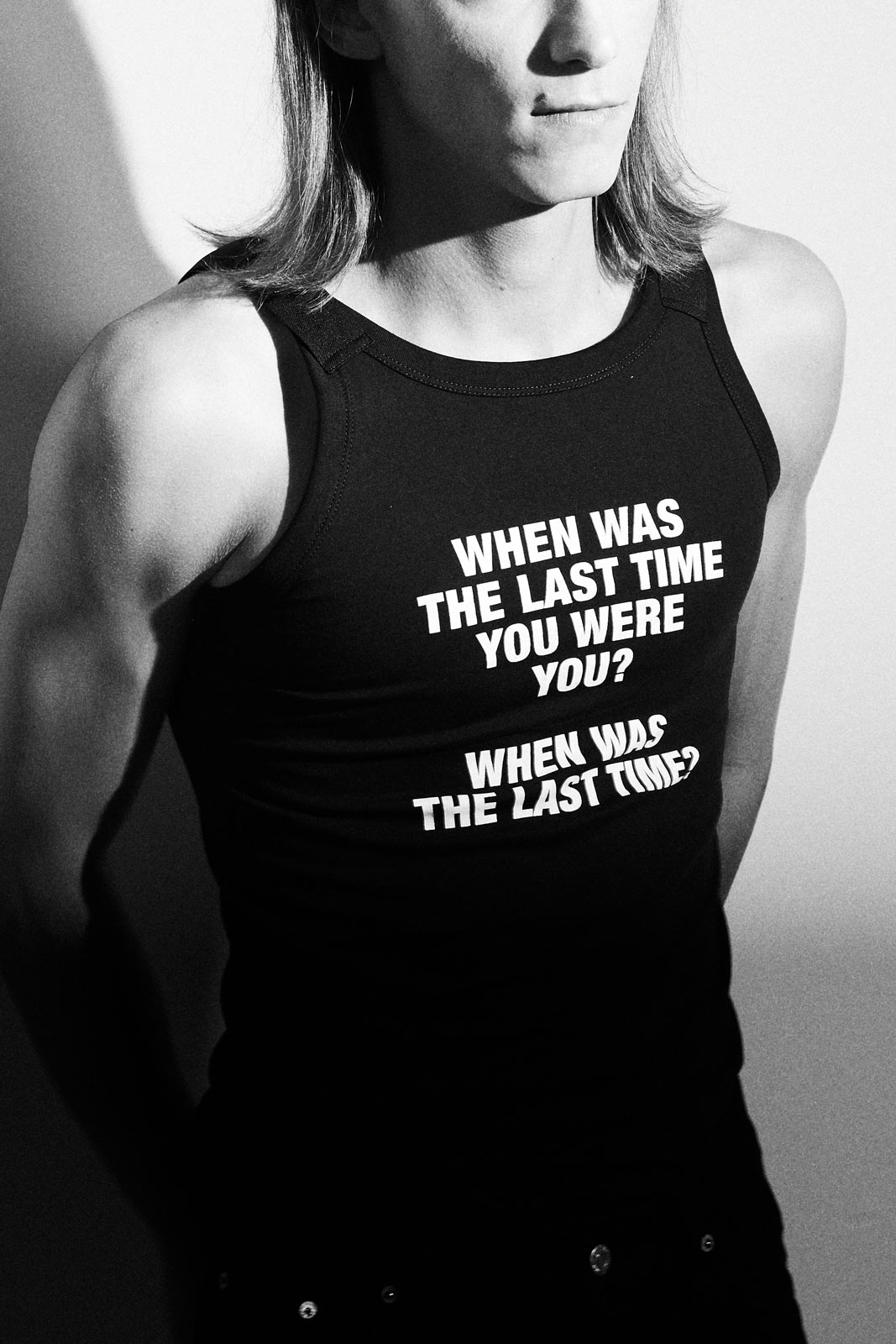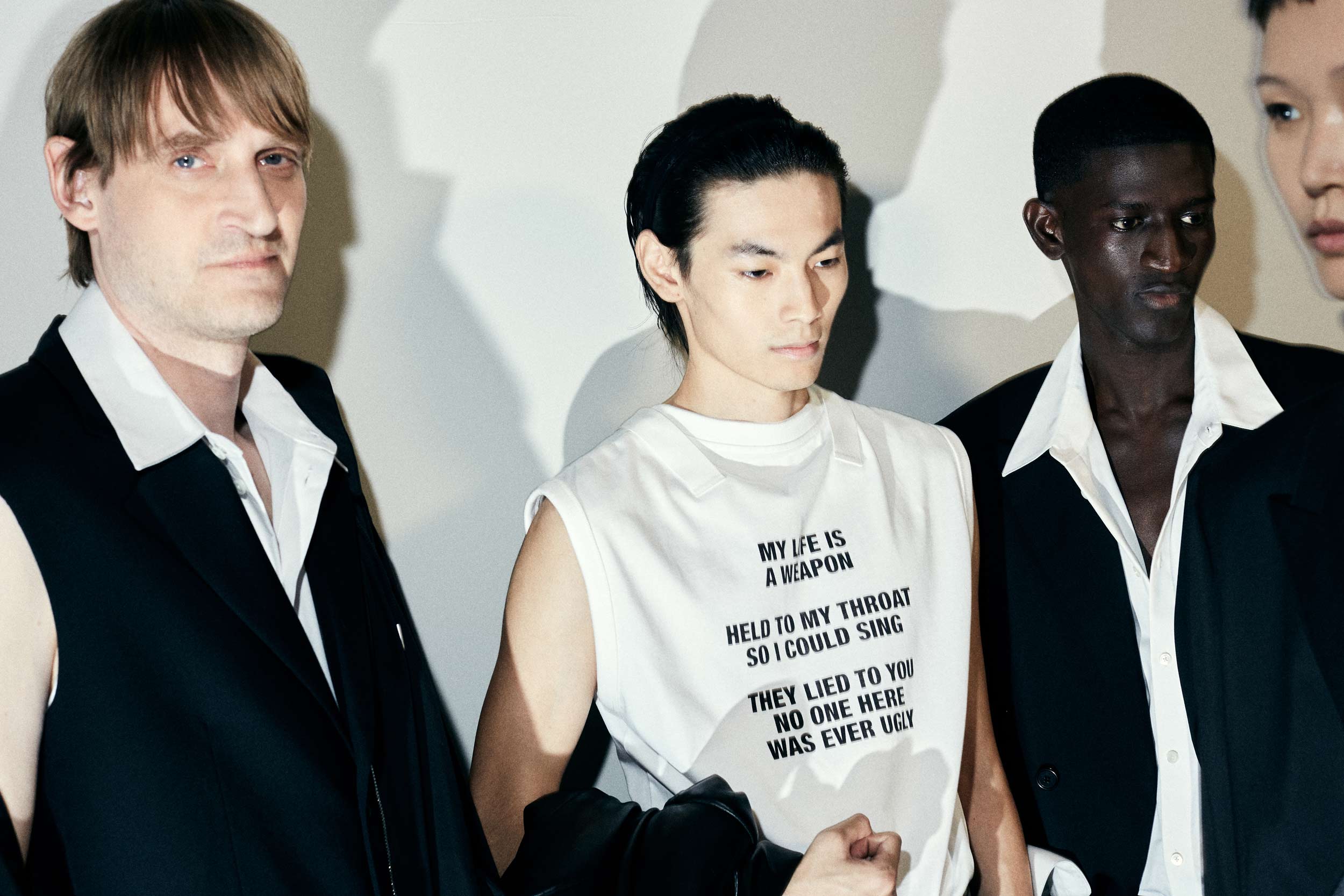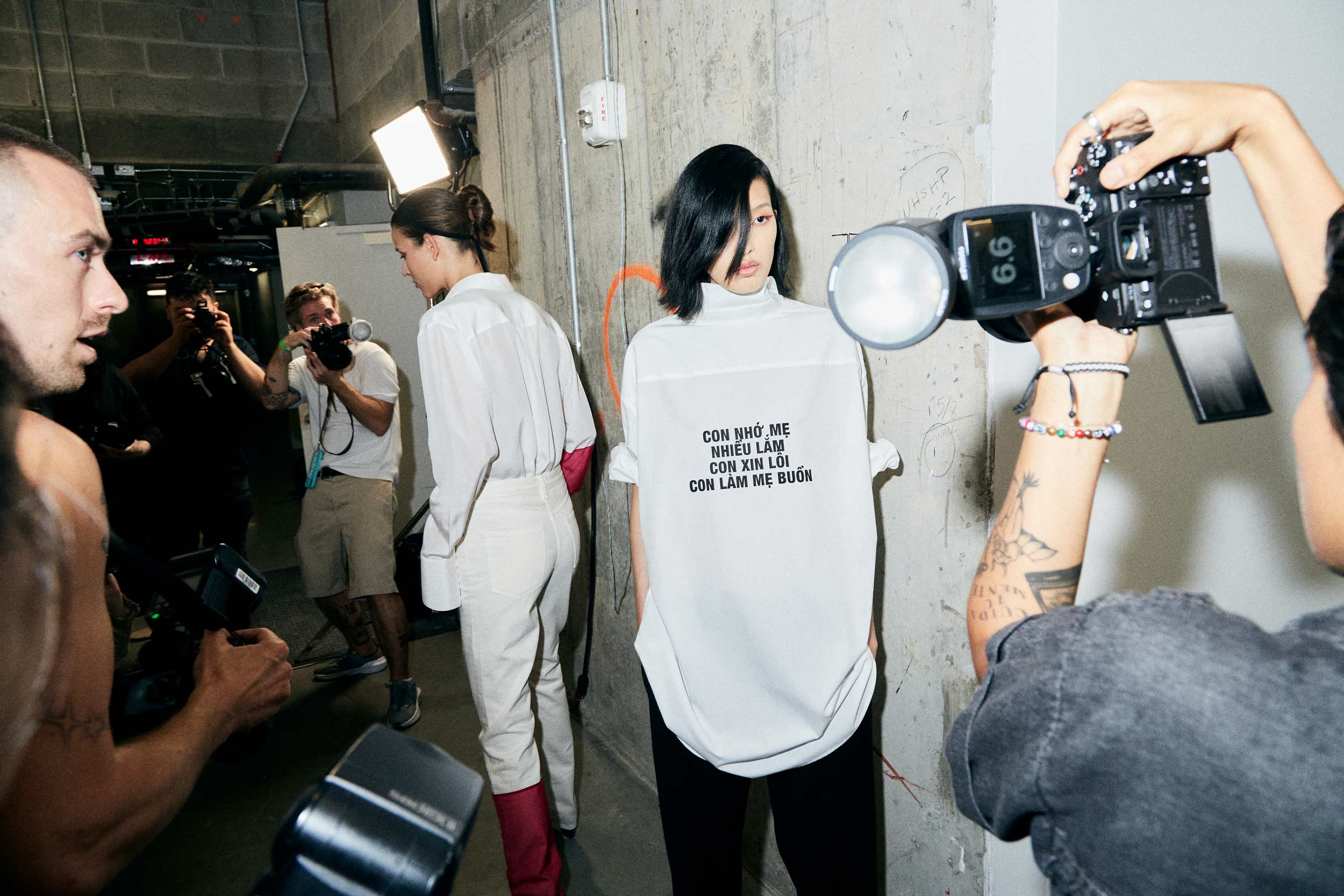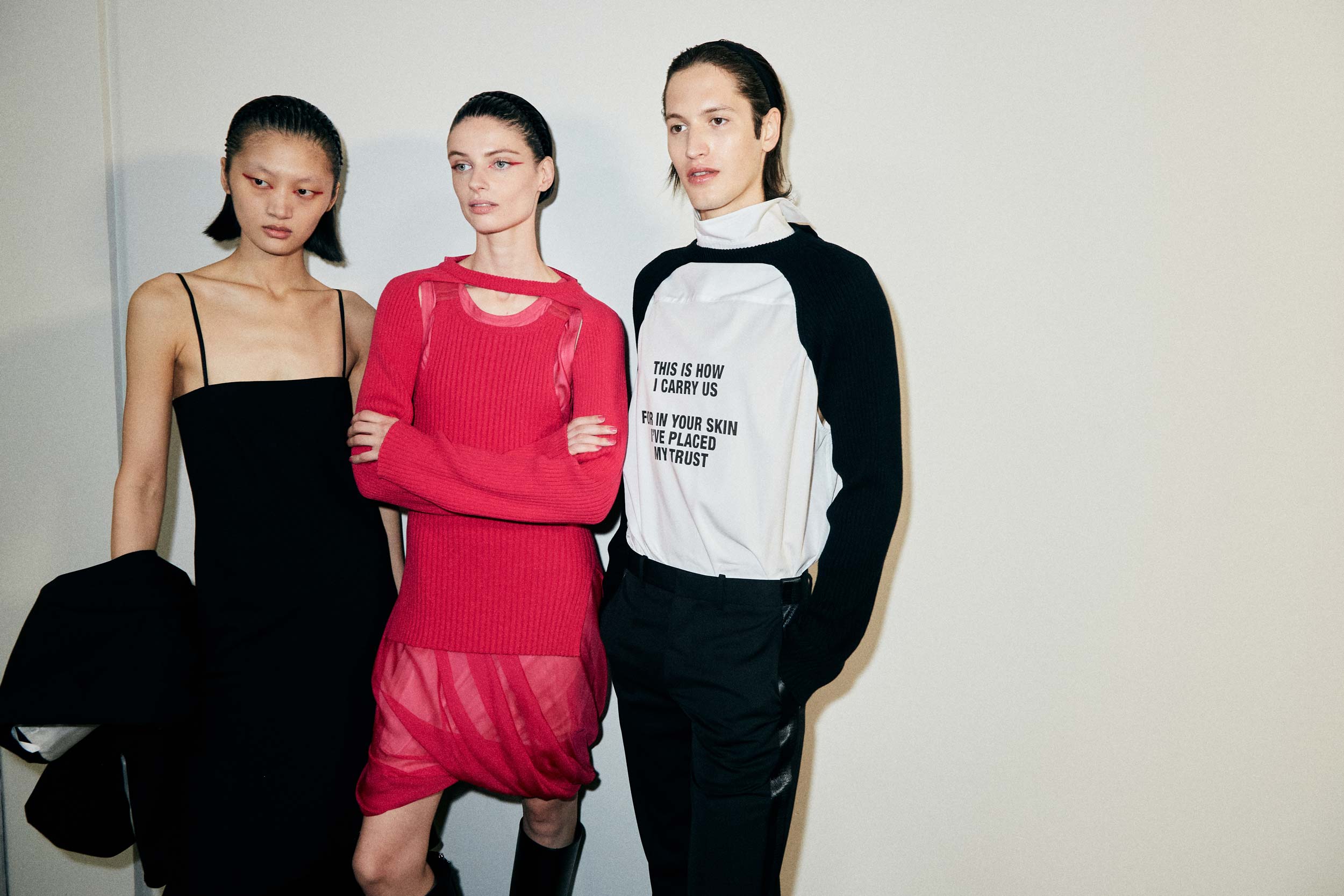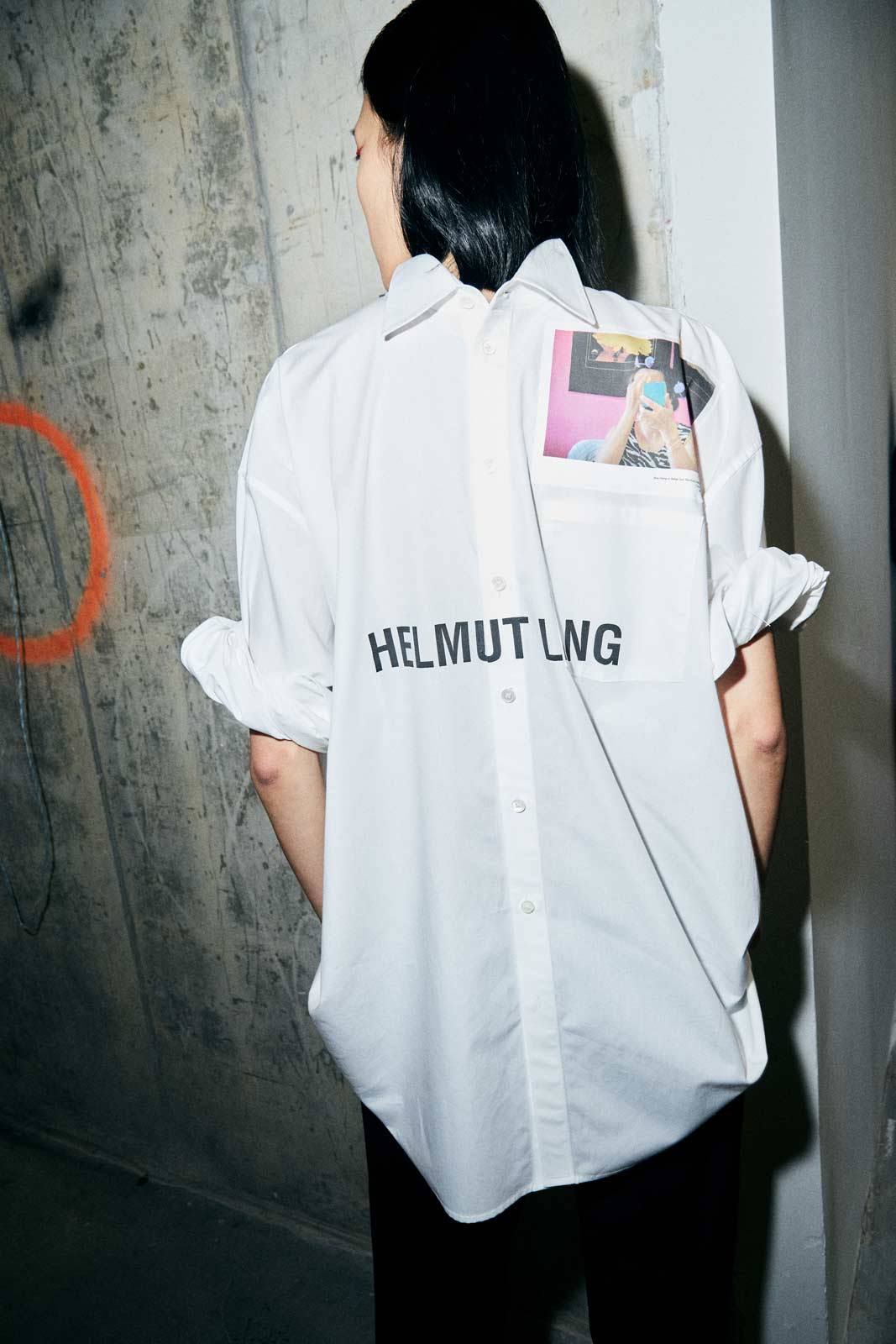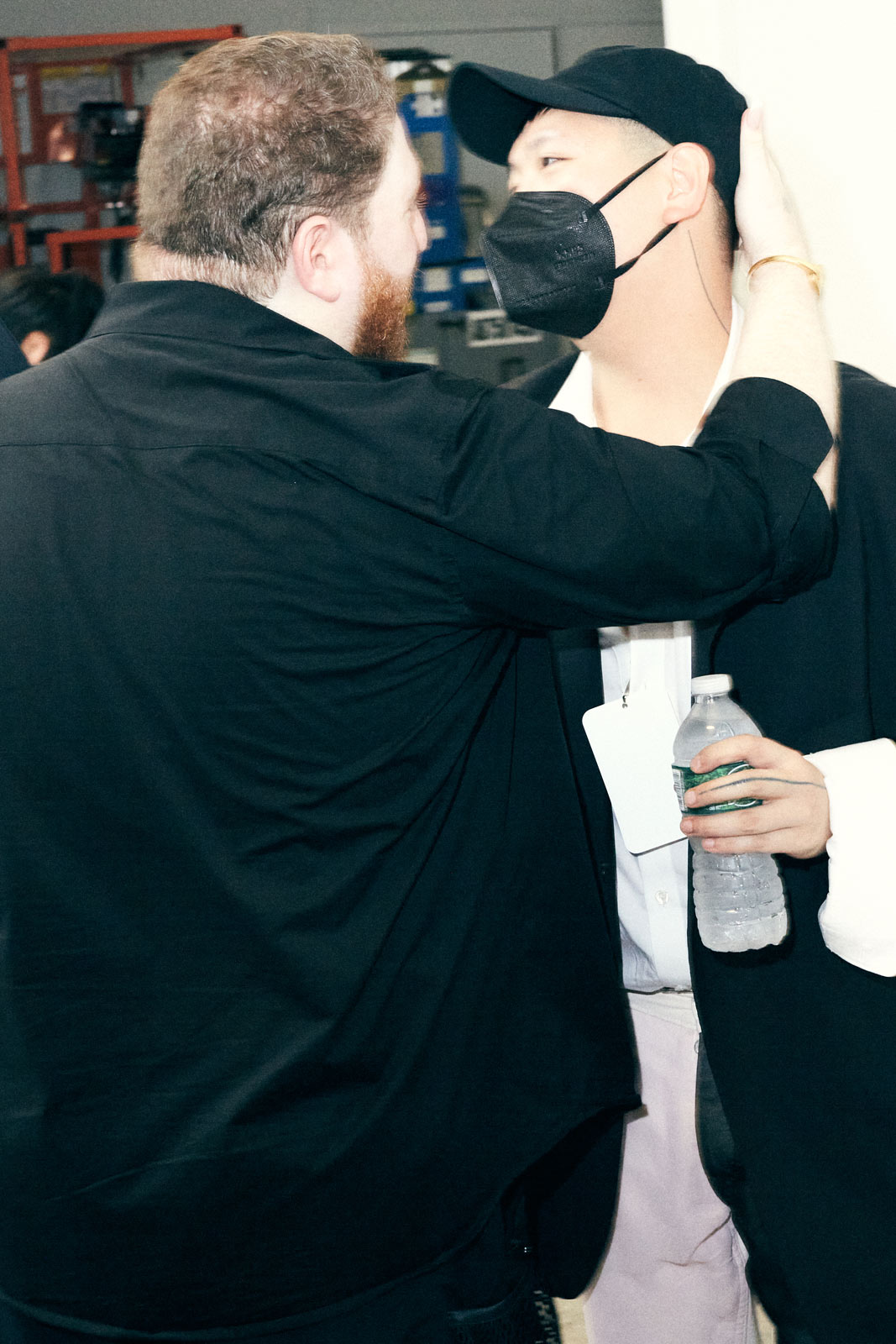The designer’s debut for the New York mainstay riffed on its aesthetic history, with the yellow taxi as its universal vehicle
Peter Do has big shoes to fill, taking charge at Helmut Lang. His first show for the New York mainstay comes only two years following his runway debut (for his namesake label), which caught the attention of industry heavy-hitters for its deft minimalist sensibilities—à la Phoebe Philo, for whom he worked at Celine. “When people talk about Helmut,” Do told W in the days ahead of the presentation, “they talk about the pieces of clothing that they own from him, from the brand, and how much those items carried them through. There’s always a story behind the clothing.”
It’s this quality that carried Spring/Summer 2024. On the Lower East Side, showgoers filed into an otherwise-sparse hall, decorated with text by the poet Ocean Vuong. It related back to the automobile, Do’s central motif—a site of freedom and autonomy for queer American youth, and a connecting point to Lang’s ties to the taxi cab. (He was the first to advertise atop the cars in the late-’90s, a move that the rest of the luxury industry deemed far too pedestrian at the time.) Critiques of the collection center Do’s allegiance to Helmut Lang’s Helmut Lang, echoing its early-aughts palette, text-based graphic tees, and tapered suiting. The subversion the garments lacked, however, could be located in the show’s messaging, centering the naivité necessary to pursue the dream of living by and off one’s art. The car, like Do’s designs, could be seen as a metaphor—“a portal,” as Vuong puts it—“allowing us to escape this world into another without leaving our bodies.”
Notably, Do’s collection is more accessible than its forebears, both in wearability and price point. “At Helmut, I really want to open the conversations to a bigger group of people,” he said, citing a focus on garments that last—durable and timeless. The silhouettes are classically tailored; tall black boots dominate; the jackets are weather-proof, ready to be thrown over any ensemble. In the end, it boils down to one of Do’s central beliefs: “Good design doesn’t alienate you.”



